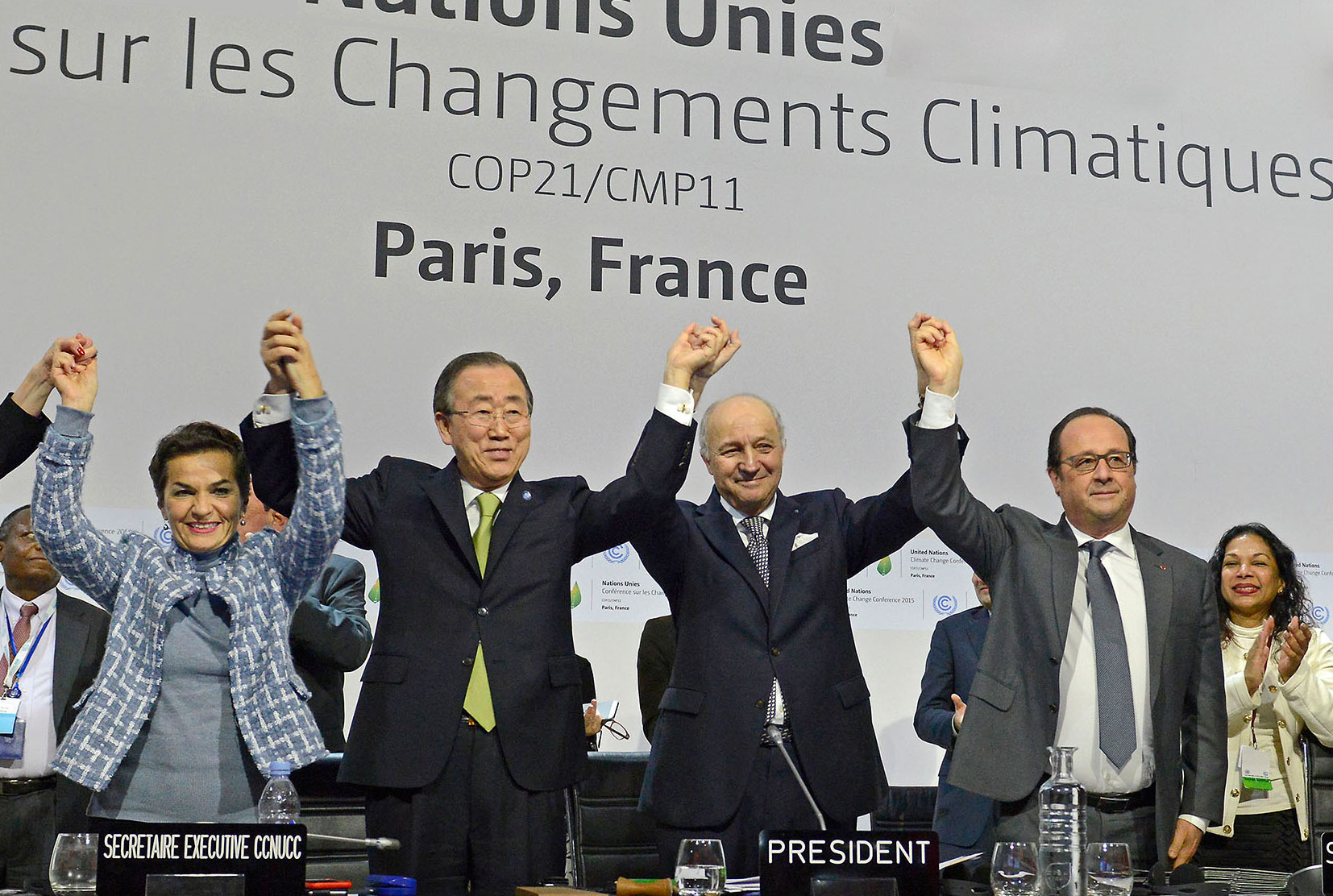More than 170 countries signed the Paris Agreement at United Nations Headquarters in New York on Earth Day, April 22, 2016. According to UN Secretary General Ban Ki-moon, “Paris will shape the lives of all future generations in a profound way – it is their future that is at stake.”
The Paris Agreement is a result of the 21st meeting of world leaders designed to address environmental sustainability. The four key points of the agreement are as follows:
- To peak greenhouse gas emissions as soon as possible and achieve a balance between sources and sinks of greenhouse gases in the second half of the century;
- To keep global temperature increase “well below” 2 degrees C (3.6 F) and to pursue efforts to limit it to 1.5 C.
- To review progress every five years; and
- To provide $100 billion a year in climate finance for developing countries by 2020, with a commitment to further finance in the future.
One of the most significant outcomes of the Paris meeting is that the debate on climate change has shifted from whether scientific evidence is strong enough to warrant making aggressive cuts in greenhouse gas emissions to accepting the science and exploring how cutting emissions can be achieved without hurting economic growth. The world is now united on this issue and recognizes a moral imperative to act.
Prior to the Paris Meeting (also known as Conference of the Parties (COP) 21) 187 countries submitted Intended National Determined Contributions (INDCs). The INDCs are what each country has committed to in terms of reducing greenhouse gas emissions.
Some of the key points are legally binding within the United Nations framework. The regular review and submission of emission reduction targets will be binding. So too will the $100bn fund from developed economies to help emerging and developing nations move away from burning fossil fuels to clean energy sources. What won’t be legally binding will be the emission targets. These will be determined by nations themselves. Since fiscal policy shapes economic activities, it is imperative that citizens hold their governments accountable for promises made.
What occurred in Paris at COP21 was the “adoption” of the Paris Agreement by the Conference of the Parties (COP) to the UN Framework Convention on Climate Change (UNFCCC). Adoption is the formal act that establishes the form and content of an agreement.
In addition to adopting the Paris Agreement, the Parties made a number of key decisions about what’s necessary for the Agreement to enter into force. They also agreed on a process for how countries will finalize their current national climate plans and shift them from being Intended Nationally Determined Contributions (INDCs) into Nationally Determined Contributions (NDCs).
The Paris Agreement will be in full legal force and effect when at least 55 Parties to the UNFCCC that account for at least 55 percent of the total global greenhouse gas emissions have deposited their instruments of ratification, acceptance, approval or accession. At this point in time, it is not possible to accurately predict when this will occur, as it depends on how quickly individual countries are able to complete their domestic approval processes. Once the Agreement enters into force, the first meeting of the Parties to the Agreement will occur in conjunction with the next COP.
It is now in the hands of the people in each country to make sure that their governments honor the commitments they have made to the world community. This requires contacting national congresspersons to tell them we want them to honor the commitments the U.S. has made. It also requires asking questions of prospective Presidential candidates about their position on the Paris Agreement. In the words of Jeffrey Sachs, director of the Earth Institute at Columbia University and a senior adviser to the U.N., “If the next President does not honor this agreement they would have to blow off the whole rest of the world and I don’t think the United States would find another partner to do that. You’d have to just be the renegade state.”
April 25, 2016


Post a comment